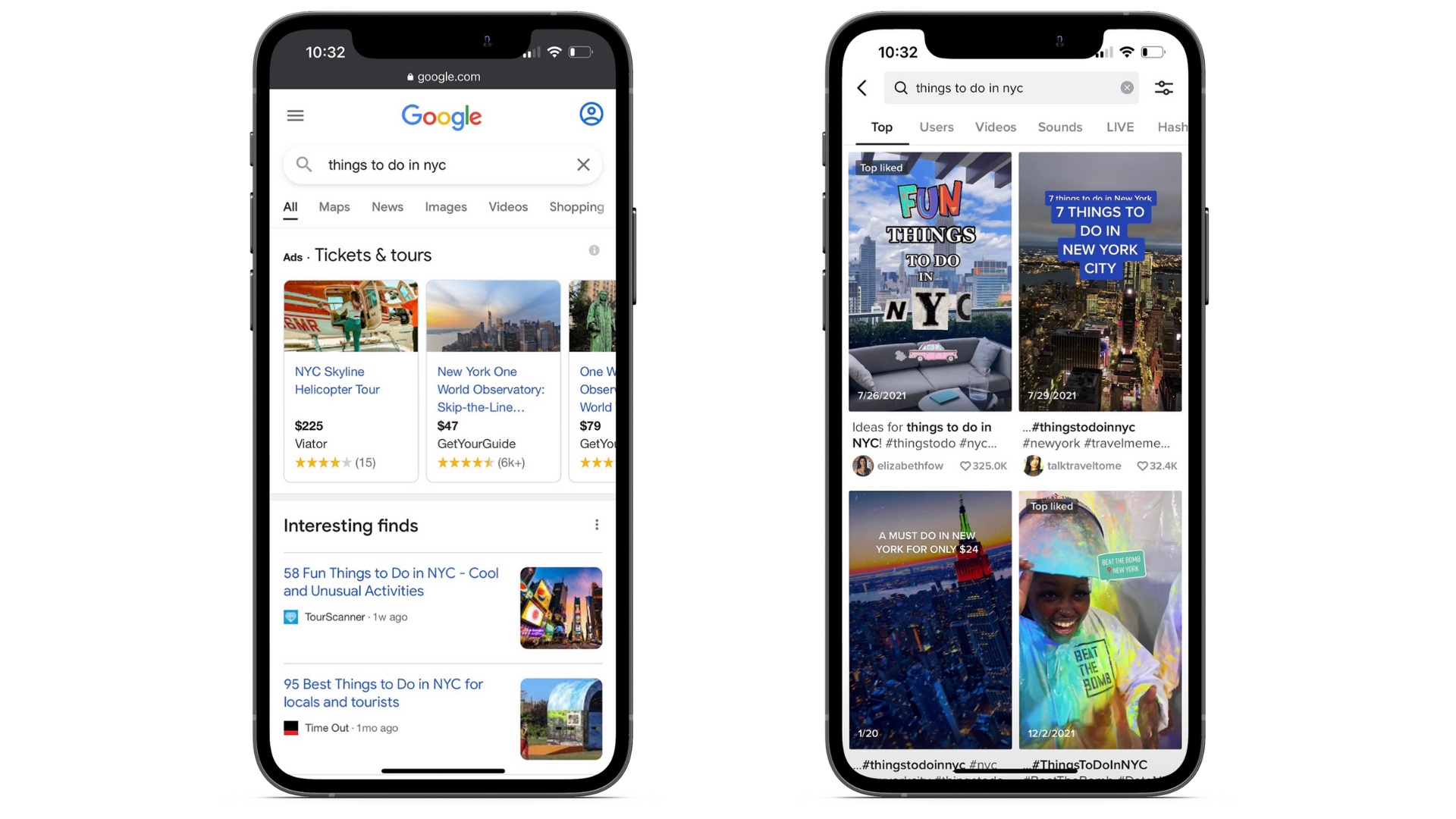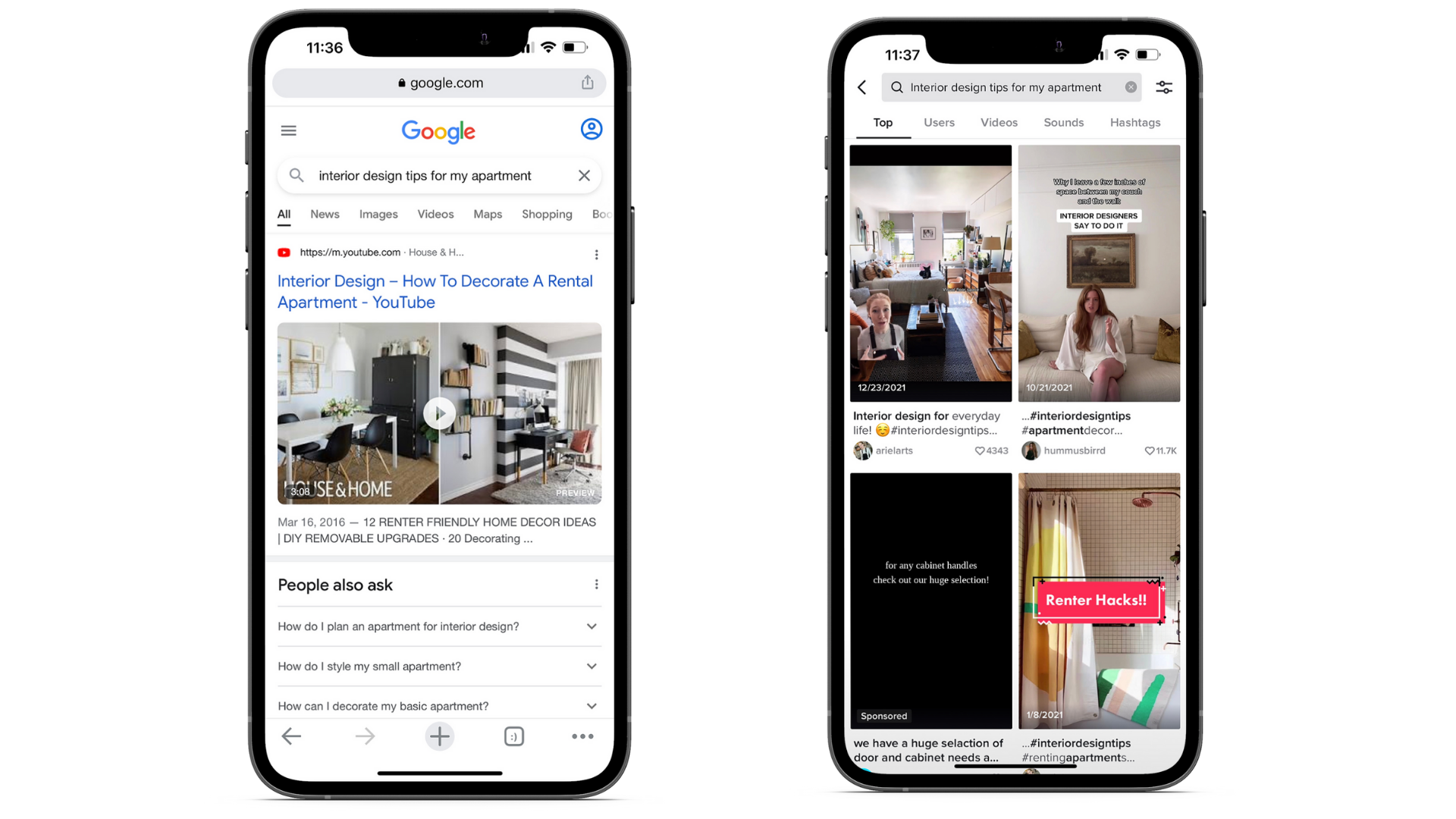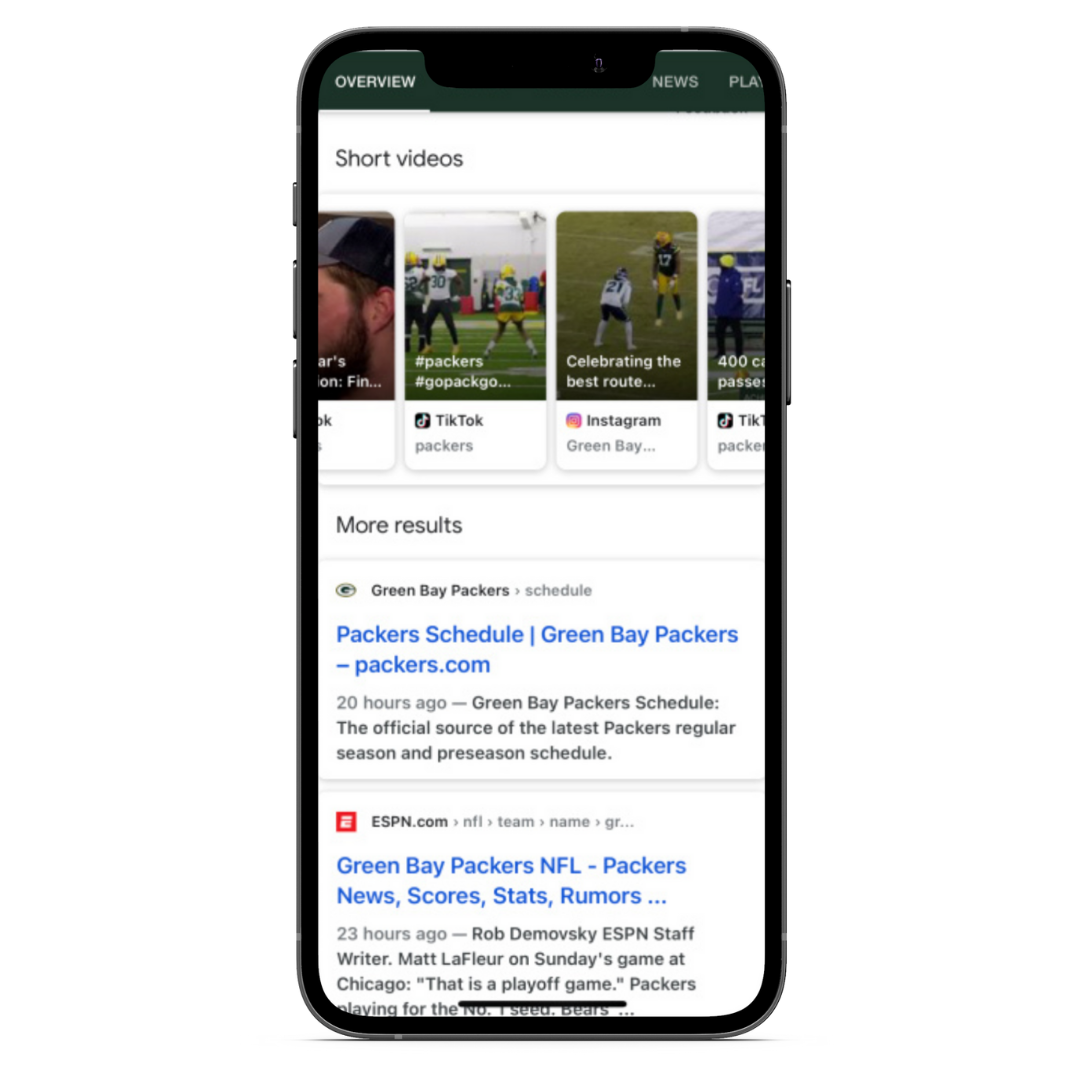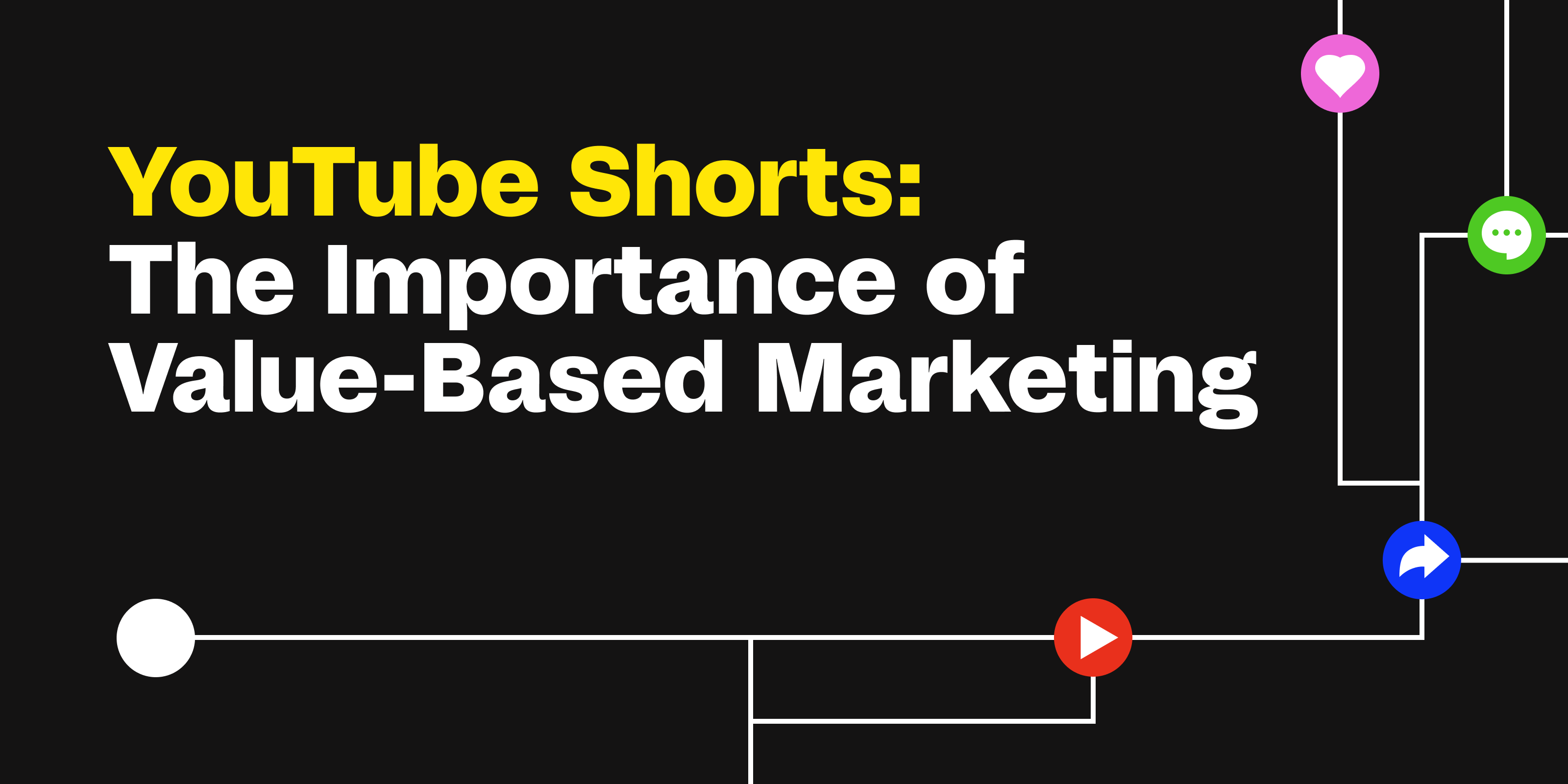TikTok is not only Facebook’s biggest threat, it’s Google’s too.
It has been 24 years since the inception of Google Search, arguably one of the greatest inventions in tech. It’s hard for most millennials like myself to imagine the internet without it. Search has been Alphabet’s key revenue driver and reigns supreme over the search market holding 92% of the total market share – but today’s users and internet are different.
TikTok vs Google Search
If you were to Google Search a product or a service today, you will see 3 types of search results:
- Brands that can afford to pay Google to show up first.
- Brands that mastered SEO and follow the rules of Google’s algorithm.
- Affiliates that make up their own rankings and charge for visibility and clicks.
None of these search results are optimal for the user as there is no real validation for quality.
At this point, most internet users know that the results for “The best CRM” are not actually the best, it’s the brand that pays $50 for your click.
“Things to do in NYC” are ticket sale ads and affiliate links that are biased toward whoever pays the most.
This leads to a sub-optimal experience and eats into the trust users have in Google’s Search Engine.
Similar to Google, TikTok’s search algorithm dictates the content you see, BUT the experience is visually engaging and socially validated – something that Google search struggles to compete with.
TikTok has quite literally become Gen Z’s newest search engine and trusted source of information. A recent study by Credit Karma shows more than half (52%) of Gen Z respondents who seek financial advice about personal finance online go to TikTok.
Google Search is losing particularly on the discovery use case. It’s no longer a product where people discover new brands, products, or experiences. Social is a better alternative here and particularly the rising giant, TikTok.
This is a challenge that Google faced previously with the rise of Facebook and Instagram, yet I believe that Facebook and Instagram never really had a breakthrough in the search use case. TikTok is positioned to succeed here with a powerful algorithm focused on video as a single content format.
For a quick comparison, here is an example of a search query on both platforms.
When searching for “Things to do in NYC” on TikTok, Google can’t even come close to their search results.
Here is a comparison for the search term:
“Things to do in NYC” on both platforms

Let’s try another one, “interior design tips for my apartment”

TikTok’s algorithm mixes what’s useful with what’s viral. Search results are validated in terms of likes or comments by other TikTok users that often share similar preferences since they fell in the same “TikTok hole” you fell into. TikTok’s culture of authenticity has made it a more trusted platform, particularly among younger audiences.
Today’s internet users are gravitating towards like-minded communities more than ever. Bland text-based algorithmic answers (even if good) still lack the trust that you can typically find in answers from members of your community, which is exactly where Google Search struggles.
Answers to questions that you would typically ask a friend are thriving big on TikTok, content on fashion, beauty, restaurants, nightlife, shopping, even career and finance are thriving on the platform and users love them. Google is expected to roll out the indexation of TikTok and Instagram videos on mobile search. A move to help improve the user experience on search results page and, in my opinion, to help stop the bleeding to TikTok.

TikTok vs YouTube Shorts
YouTube, the true alma mater of our generation and the best invention in the past two decades, in my opinion, is also under a real threat from TikTok. Snackable, short videos ranging 15-60 seconds are a crucial space for YouTube. 70% of YouTube videos are consumed on mobile. This is TikTok’s sweet spot.
In 2008, Salman Khan started Khan Academy teaching math and algebra on YouTube. It was one of the most inspirational entrepreneur stories of our generation. In 2021, Olivia Philips, (TikTok @miss.philips) a Harvard Teacher Fellow, is building a career using TikTok to reach and teach Algebra to younger audiences. She wrote about her experience here.
To get a sense of the scale of educational content on TikTok, here are example hashtag views:
- #booktok has 40 billion views
- #Learnontiktok has 260 billion views
- #biztok has 70 million views
And here are some tweets on the topic that capture the sentiments of some TikTok users.
the things I learn about adhd everyday on tiktok really has me self diagnosing myself.. bc there’s no way there’s a reasonable explanation for everything i struggle with 😭
— hijabii (@hijabsterx) March 8, 2022
damn, I really learn everything on tiktok. I had literally NO idea that eyebrow cuts originated from the hip hop scene until today and is considered cultural appropriation: pic.twitter.com/BQuOAAc1rp
— worm (taylor’s version.) 🦷🪱 (@c_wboylikeme) February 1, 2021
why am i paying to go to school when i can learn everything i need to know on tiktok ? pic.twitter.com/IaqSAchzsH
— hot ebony 💗 (@richbitchburnr) January 20, 2022
YouTube, feeling the heat from TikTok, decided to launch YouTube Shorts in 2020 – a feature within the site identical to the TikTok user experience of minute-long, swipeable videos. They made it the team’s top priority ever since.
According to Google, YouTube Shorts grew to 6.5 billion daily views after their US release in March 2021. In July 2021, YouTube Shorts became available in more than 100 countries worldwide and surpassed the 15 billion daily average views. During the same month, TikTok launched longer video formats on the platform, inching closer into YouTube’s territory.
From face value, it seems like YouTube Shorts is putting up a good fight against their biggest rival, TikTok. However, I believe the daily average views stat is mostly a PR vanity metric that doesn’t really tell us much about the health and growth of YouTube Shorts. I would be curious to know their daily active users or the average daily time spent metrics instead.
I also wonder how many daily average views are happening on TikTok today if we were to get a scale comparison between the two. TikTok tends to be more private about stats that reveal the true health or growth of the business. We are left with data from third-party data mobile analytics sources like App Annie and Sensor Tower. Generally, it’s fair to say that the usage stats has been a PR tool in this attrition war between platforms and they are not useful most of the time.







Leave a comment